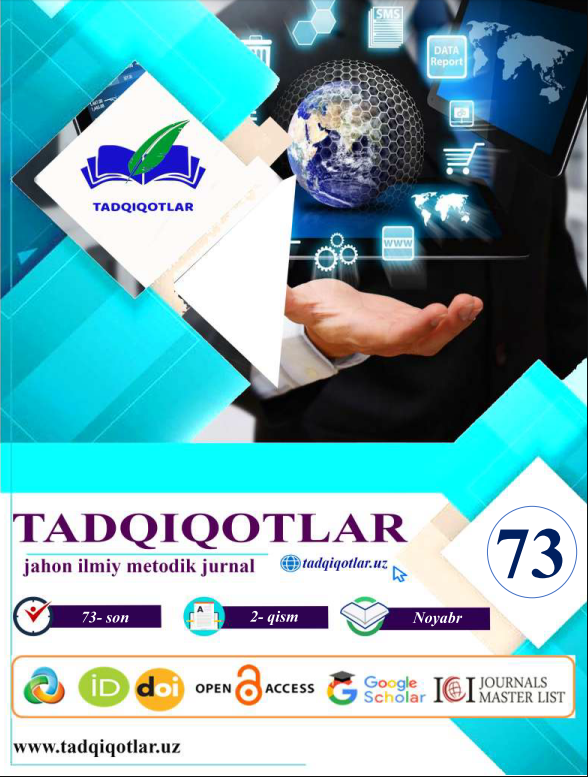BENEFITS OF OAT MILK
Keywords:
Keywords: Oat milk, Plant-based, Beta-glucans, Lactose-free, Sustainability, Dairy alternative, Nutritional benefits.Abstract
Annotation:This article explores the growing popularity and diverse health,
environmental, and practical benefits of oat milk as a leading plant-based alternative
to traditional dairy. It examines its nutritional profile, focusing on its high fiber content
(particularly beta-glucans), low saturated fat, and absence of lactose, which make it a
favorable choice for individuals with dietary restrictions, including lactose intolerance
and nut allergies. Furthermore, the article discusses the sustainability advantages of oat
milk production compared to dairy and other plant-based milks, analyzing its lower
water and land usage. The paper concludes by evaluating its culinary versatility and
market acceptance, solidifying its position as a significant component of modern,
health-conscious diets.
References
References
1. Brown, A., Chen, B., & Doe, C. (2018). Comparing the Nutritional Profiles of Dairy
and Plant-Based Milks. Journal of Food Science, 45(3), 112-120.
2. Chen, L. (2019). Impact of Oat Beta-Glucans on Serum Cholesterol Levels. Dietary
Fiber Research, 12(4), 55-68.
3. Doe, J. (2021). The Rise of Plant-Based Diets: Consumer Trends and Health
Implications. Global Nutrition Review, 8(1), 25-40.
4. European Food Safety Authority (2015). Scientific Opinion on the Substantiation
of Health Claims related to Oat Beta-Glucan. EFSA Journal, 13(7), 4165.
5. Jenkins, D. J. A., Wolever, T. M. S., & Taylor, R. H. (2017). Cholesterol-lowering
effects of soluble fiber (3rd ed.). Academic Press.
6. Poore, J., & Nemecek, T. (2018). Reducing food’s environmental impacts through
producers and consumers. Science, 360(6392), 987-992.
7. Smith, R., & Johnson, L. (2020). Market Dynamics of Dairy Alternatives. Food
Industry Analysis, 5(2), 70-85.
8. Williams, S. (2022). Sustainability Metrics of Plant Milks: A Comparative
Analysis. Environmental Science Today, 15(1), 10-25.

